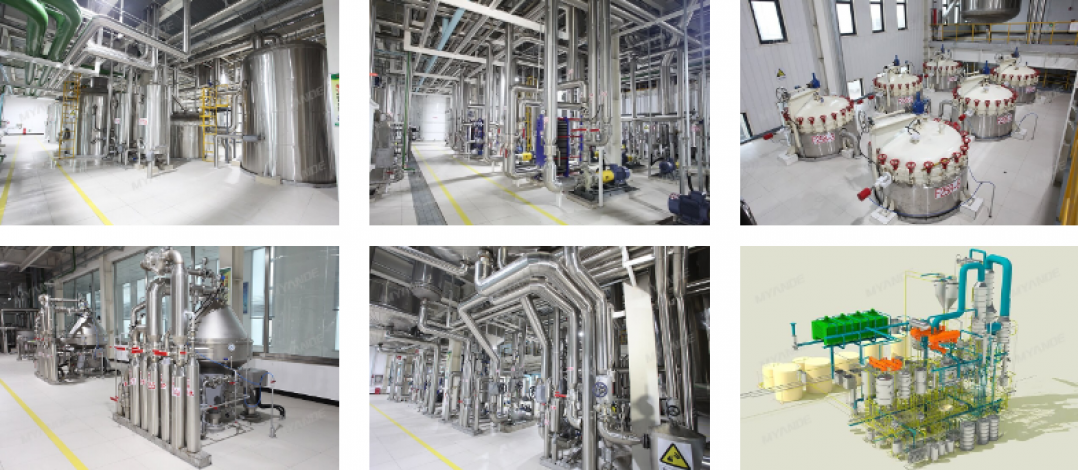
Edible oil refining plant with a capacity ranging from 50 t/d to 3,000 t/d suitable for soybean oil, rapeseed oil, sunflower seed oil, rice bran oil, palm oil, corn oil, peanut oil, cottonseed oil, linseed oil, animal fats, oils, chicken fat, butter, fish oil and etc. Oil refining is the last process in the processing chain from oilseed to edible oil.
We are committed to making every drop of oil safe, healthy, and nutritious. Value-adding by-products may be produced from processing stages like Degumming, Neutralization, Bleaching, Dewaxing/Winterization, and Deodorization.
The objective of refining is to remove objectionable co-constituents in edible oil with the least possible damage to glycerides and minimal loss of desirable constituents. Methods of refining depend on the nature and quantity of impurities contained in crude oil, and the application of RBD oil.
The common refining process includes Degumming, Neutralizing, Bleaching, Deodorizing, and sometimes dewaxing (Mainly removing free fatty acid and other minor constituents). The process is suitable for refining soybean oil, rapeseed oil, sunflower oil, palm oil and etc.
Oil Refining Edible Oil Refinery Plant Edible Oil Refinery Crude Oil Refining Edible Oil Refining Plant 3D Design of Edible Oil Refining.
1. Degumming
The purpose of degumming is to remove impurities such as phospholipids, gums, proteins and etc. There are several methods as follows: water degumming, acid degumming, special degumming and etc.
2. Neutralizing
The purpose of neutralizing is to remove free fatty acid in edible oil by using caustic soda while removing impurities such as phospholipid, pigments, metal ions, and peroxide under the adsorption of soap stock.
3. Bleaching
Bleaching is the process that removes coloured matter by mixing bleaching earth with edible oil under controlled conditions of temperature. After proper mixing with bleaching earth for a specific residence time, the mixture is finally pumped into leaf filters with stainless steel mesh elements followed by polishing filtration.
4. Deodorizing
Deodorizing is the final stage in edible oil refining in order to remove odoriferous material, free fatty acids, and other undesired minor components by steam distillation under conditions of high temperature and vacuum to produce a bland oil with a good shelf life.
5. Dewaxing
Through an automatic control system, combined with the crystallization curve (time-amount of crystallinity) of different oil, crystals in oil grow and finally can be separated by filtration to obtain dewaxed oil.
By:
Myande Group
Source:
Online/KSU
Comment Now